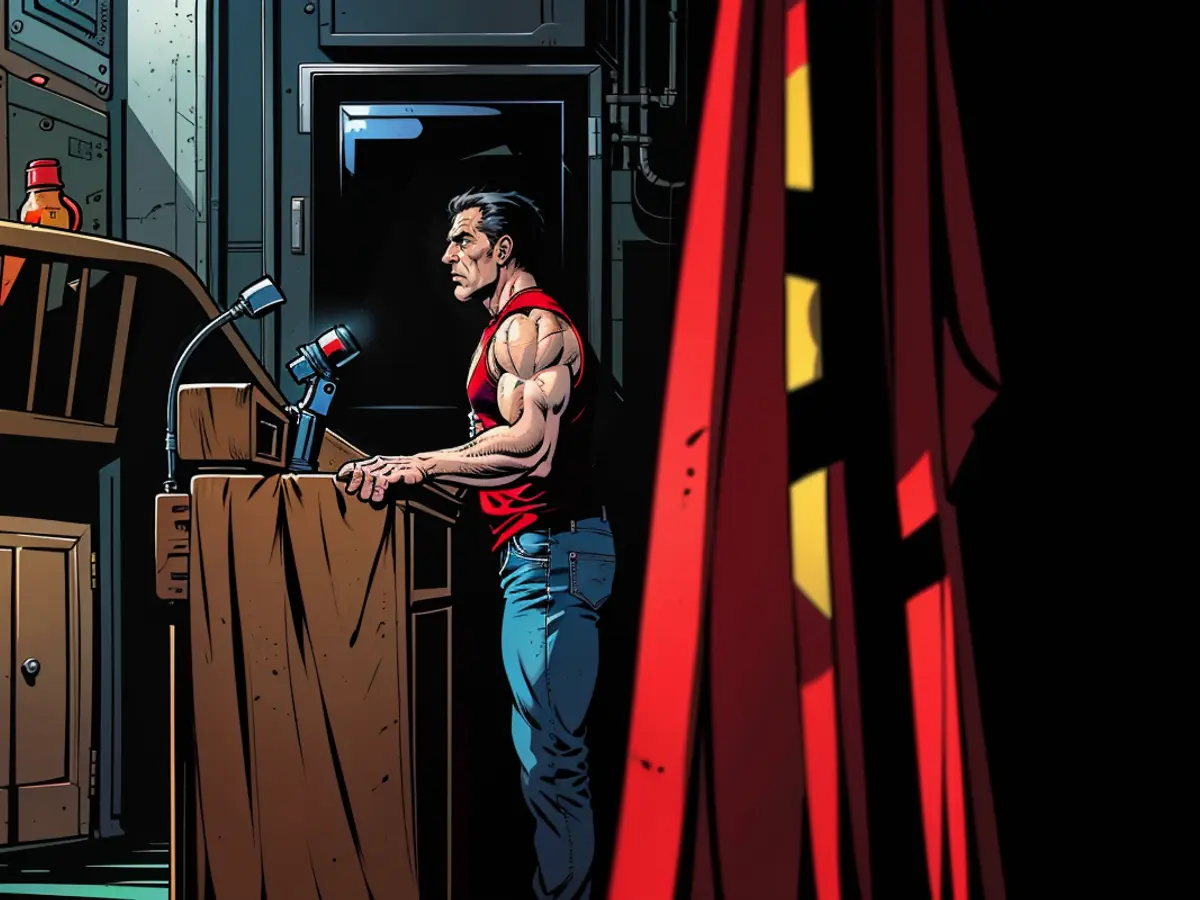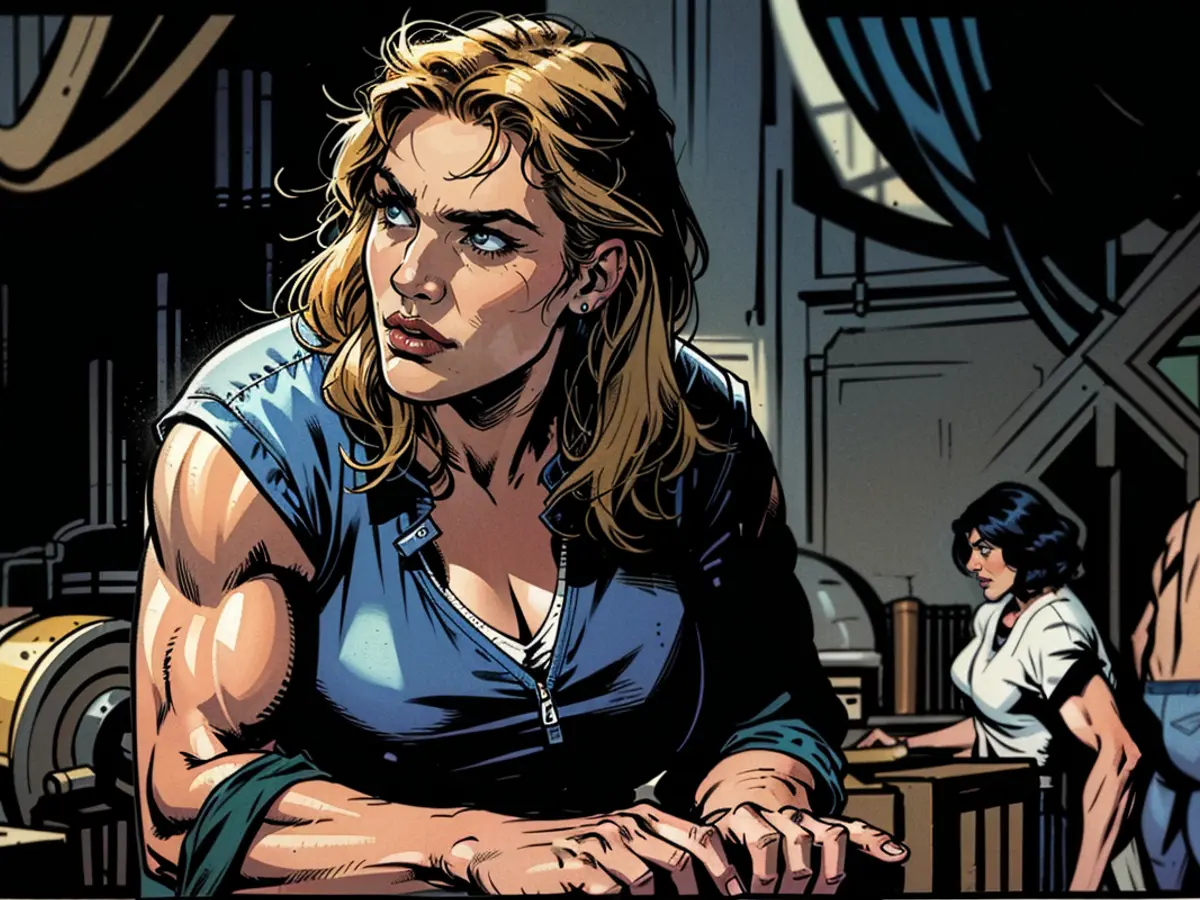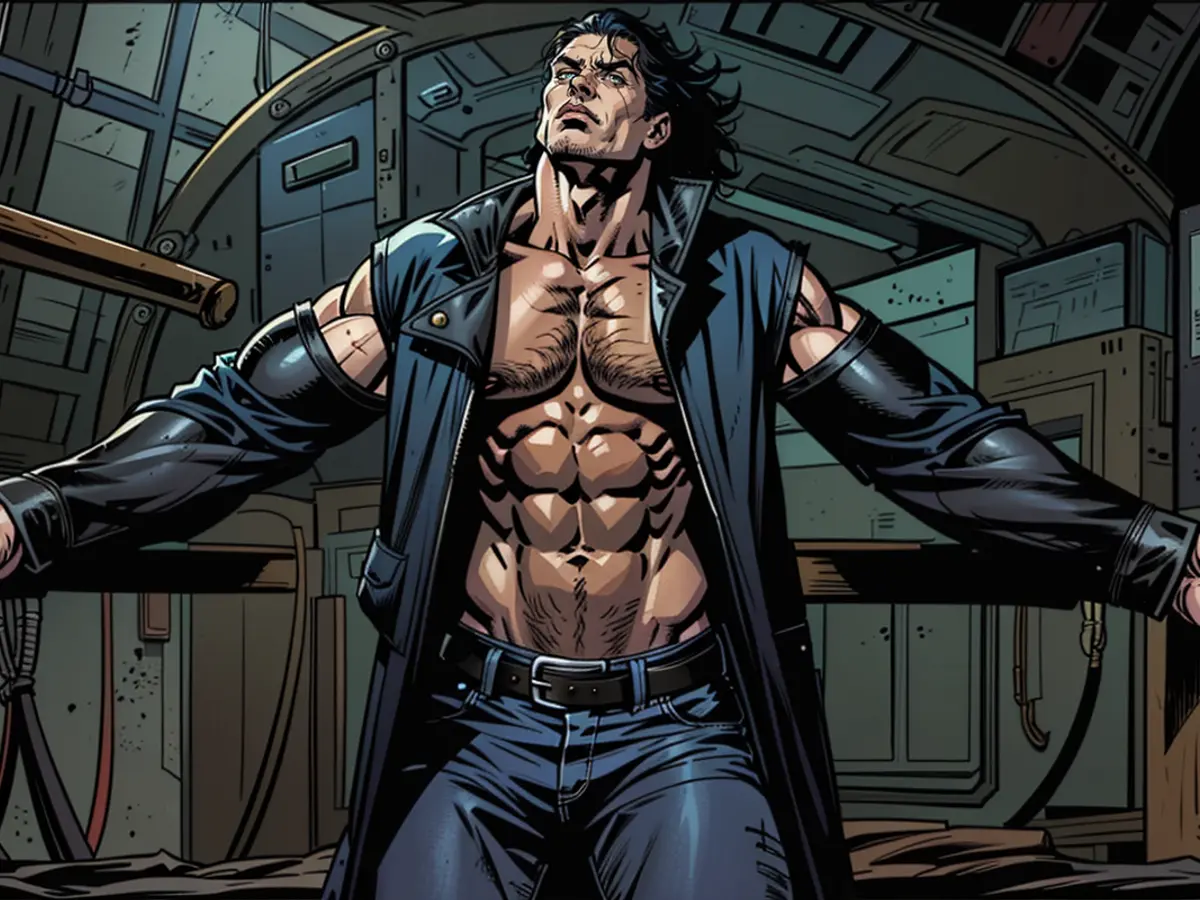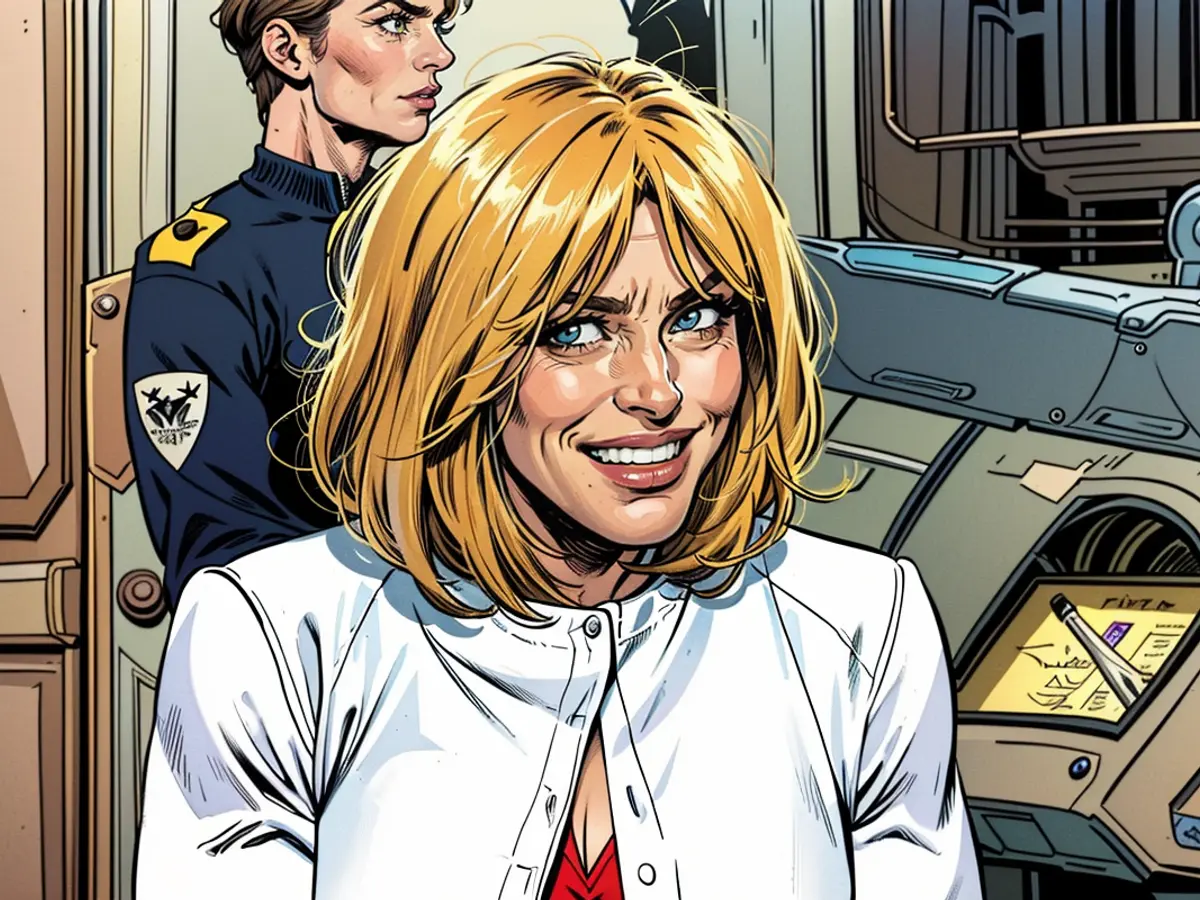People do not believe in 'State radio' anymore
Since his appearance in Leander Haußmann's "Sonnenallee" nearly half a century ago, Robert Stadlober, an Austrian, has been an indelible presence in the German cinema. For his latest project, the 41-year-old now turns his attention to the darkest chapter of German history, in which an Austrian played a significant role. However, Stadlober does not play Adolf Hitler, but rather his ruthless and human-hating Propaganda Minister Joseph Goebbels.
In an interview with ntv.de, Robert Stadlober talks about toxic masculinity, what we should learn from the past, and what hopes he harbors for the future in times like these.
ntv.de: Robert, when you receive an offer to play a role like Joseph Goebbels, do you say yes right away because it's a unique "opportunity," or are there greater doubts?
Robert Stadlober: I have never seen my roles as opportunities. I have never understood my life that way. What I do is not a career for me, but rather what drives me from within. And yet it was a decision that did not come easily, as one has a responsibility towards the victims of this politics and this man, as well as towards oneself and one's family. It's not about whether I could get rid of the role. First, I have to come to terms with these thoughts within myself, and then I carry them with me into my life.
Is maintaining the right distance the greatest challenge, or is there something else that made you hesitate?
One can fail by becoming just another caricature, another Nazi portrayal that cinema history has seen many times before. Or one can add a facet that might cause people to see things differently, as they saw them before they saw the film. And that was the point where I thought, okay, in this film, I will actually be told something new, something that interests me. And that's ultimately my responsibility as an actor. I want to tell stories that make people question things.
The project is historically grounded, as director Prof. Dr. Joachim Lang is himself a historian, and it also received support from Thomas Weber, Professor for History. Did this help in the development of the character?
I am quite solitary in my approach. I don't like to talk to many people about it. There are people who delve into things through long discussions. I deal with it myself and often can't even clearly name what I need to bring a role to life. It's a rather intuitive process. And it was helpful here to know that one can rely on people and quickly obtain certain data or clarify certain connections. That was helpful with Joachim, a historian. I have long been interested in this time and its impact on our world and knew quite a bit about it myself. What interested me most was making a film that shows the images Goebbels tried to prevent us from seeing. As an actor, I found that intriguing.
Can you be more specific?
What did Goebbels try to conceal? The absurdity, the unsuitability, the failure to measure up to the ideal they all propagated. No one in this leadership circle was the blond, tall, strong man they had found ideal. Seeing the production Goebbels created of himself and what he tried to conceal, I found intriguing. Goebbels often spoke in a Rhineland dialect he tried to suppress, instead opting for "Nibelungen-German," which did not succeed. He wanted to appear as a strong man, but was small, humpbacked, and had substance problems. Working with these aspects and deciphering them as an actor, I found very interesting.
Similarities to currently living people are of course mere coincidence. Toxic masculinity is, however, more than just widespread among despots ...
One of the most important preparatory tools for me was "Männerphantasien" by Klaus Theweleit. In it, the masculinity image in militarism and National Socialism is explicitly taken apart. It has a comical fascination for other men and the strange attempt to create masculinity that at least appears from the outside to be strange and toxic.
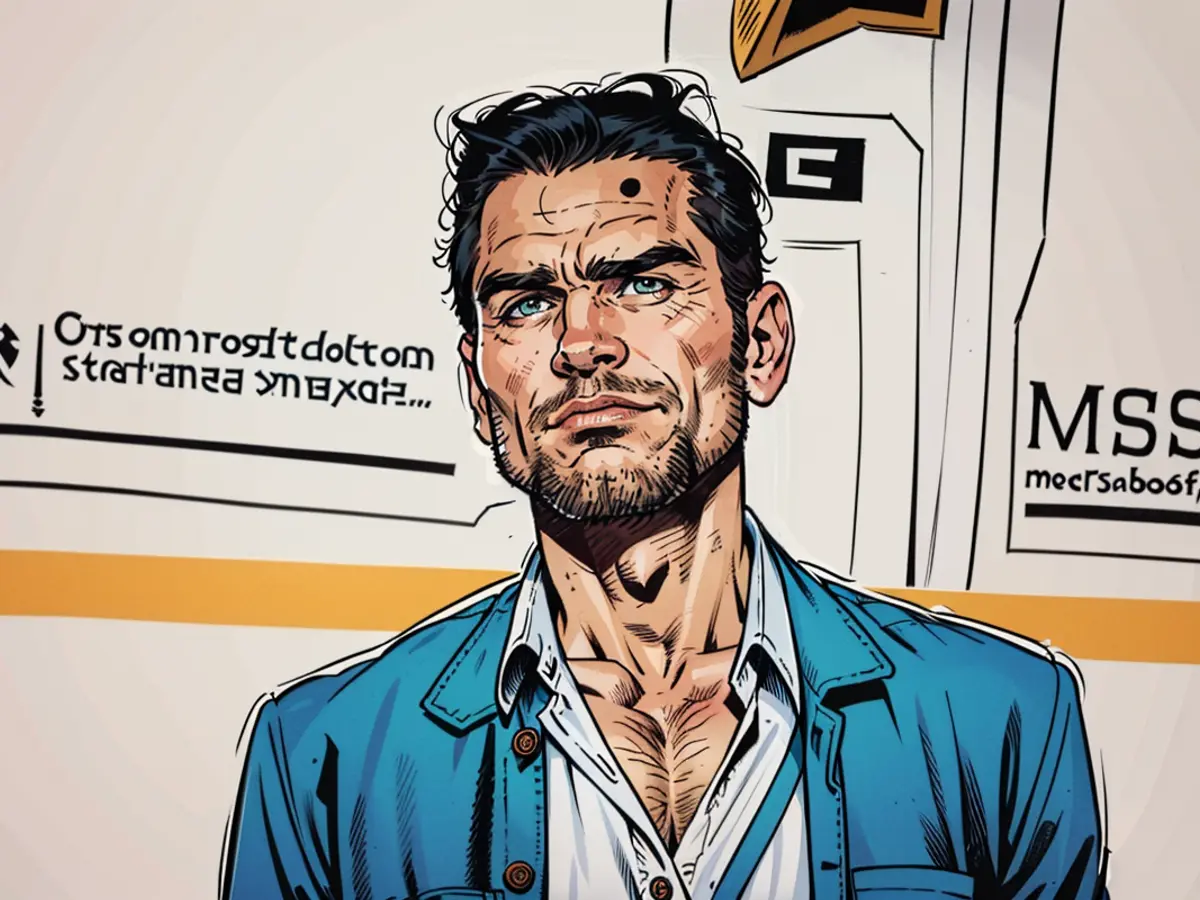
Hitler has become a meme on TikTok now. Is the danger of this toxic masculinity no longer taken seriously today?
I believe that every generation deals with history and its own cultural techniques in its own way. The cultural technique of this generation is memes. If they turn Hitler into a laughable man, I am in agreement. Everything that this leadership circle demystified is fantastic. A young generation shows us differently than, for example, my generation, that the responsibility was greater than just for ten people. It was an entire country. It may be that they were led astray by Goebbels and that he found a technique for packaging propaganda in culture, films, and music, so that it was perhaps not so noticeable. That is something we are still grappling with today. Nonetheless, the blame lay with many in this country.
What they did not want to acknowledge. Something, before which we are still not free...
Exactly. If more people had said after 1945, "Yes, we were deceived, but it pains us. We made mistakes. It was horrific, what we did. We killed people who had done nothing more than be the people they were," then I believe we could have dealt with these things much earlier. But for decades, it was done as if a few aliens had come and enslaved the poor, German people. No, they were complicit. If after 1945 someone had said, "Yes, it was clear to me that my neighbors had not gone on vacation. But I was afraid for my own little life and what I had built," then the handling of this would have been simpler.
Acknowledging this responsibility is, however, not easy.
I don't mean that Lieschen Mueller on the street had to do it. But the politics could have. There were enough people involved in this power apparatus until the 70s who never spoke out. They were prosecutors and other public officials.
Thanks to digitalization, at least today everyone can feel they have access to all the information - real news, but also fake news. Getting by with ignorance will therefore become increasingly difficult.
People don't come to all the info. The info keeps piling up and narrowing down. But they could come to all the info. If one engages intensely with such things, other things become clearer. The way Goebbels used propaganda was something completely new. Earlier, these spheres were relatively separate. There was political speech, then one went to the theater, to the concert, to the cinema or read a book. That was not necessarily mixed. Goebbels managed to make one go to the cinema, watch a love film, and then want to vote for the NSDAP. With the Volksempfänger and the radio, he managed to supply layers of the population with media that had never been reached before. These people might not have had the time, money, or the ability to understand what was in the newspaper. Suddenly, they were at the pulse of the times and felt they had influence on the events.
This is indeed a parallel to the present time...
Absolutely. It's a continuity that goes on. The democratization of media was present in the NSDAP in a way, only that there were very few different voices. Suddenly, people could hear voices they had never heard before. Today, someone can set up their channel, and one can see and receive content from all over the place that one would have had to get from the library 20 years ago. Whether the content is well-researched or not is another matter.
Without Social Media, there would have never been an Arab Spring, but also the fronts in matters of Corona, Russia/Ukraine, and Israel/Gaza would not have hardened so much.
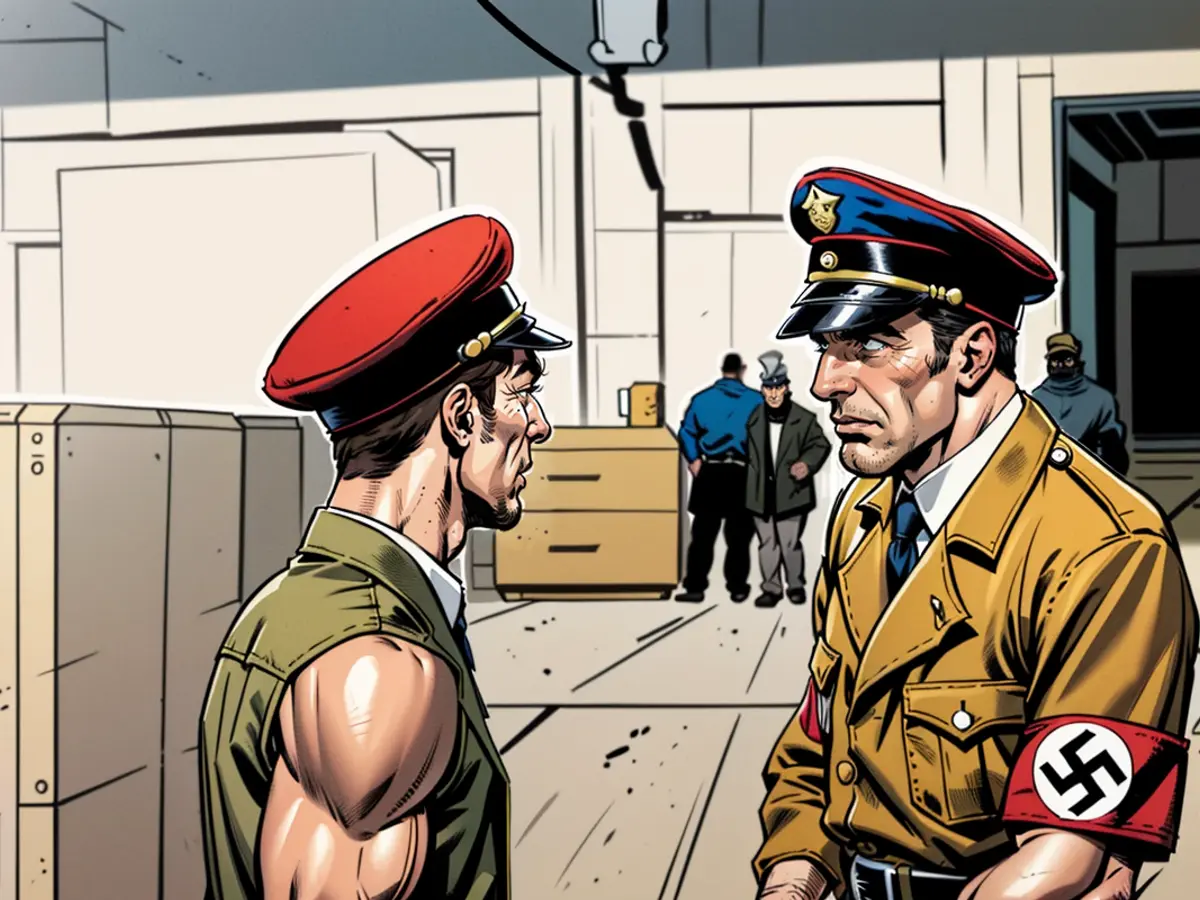
The question is, if a democratic instrument can actually exist if it is built according to market economic principles. Can a platform, which has to make money, really have revealing potential? That's a big question. Whether it's TikTok or Instagram, it doesn't matter. They are commercial enterprises that have to make money for their shareholders. Of course, they don't want us to have more power and take more control of our lives. They want us to be less self-determined and buy more from them. That's also political. The political narrative is being narrowed down, because the more we democratically negotiate with each other, the more we would challenge their monopolistic position.
How can we solve this problem in 2024? The child has already fallen into (fortunately only) the metaphorical well.
It's difficult that all democratic parties want and have to meet on these platforms. How long have we been talking about a public internet or a public social media channel that is developed by societies throughout Europe? Nobody makes it, but that would probably be the only countermeasure. One would have to then attract people to their side who one would have to pay roughly as much as Elon Musk or Jeff Bezos pay their people. But that can't be done because one has already given away the market power to these companies. And then it becomes a vicious circle.
Nevertheless, the feeling remains that the AfD plays the Social Media game best, while other parties have missed the boat.
The AfD is good because they answer complex issues very simply. However, their answers often have nothing to do with the actual issues. I live in Austria. What the FPO does is continuously disrespecting the people who vote for them, and they have been doing this for decades. Yet, they have managed to create a hegemonic media situation for themselves. People no longer believe the "state broadcast" and only listen to the nonsense from the FPO. The laws they then pass are against those who have voted for them. It somehow works, as they manage to keep selling it to them. The problem is not that other parties cannot function in these short media, but that the answers from liberal politicians and politicians are more complex than a TikTok algorithm can handle.
This is a beautifully pessimistic interview, which is probably in line with the theme of your film.
Moreover, excluding politics cannot be met with exclusion or hate. As a political party, you have to make the offer: "We are building a beautiful world. Join us, as it's more fun. It will be better. This future will be beautiful." Instead of constantly saying "You've said the wrong word, you're an asshole, go to the Nazis," people naturally go to the Nazis and say "All clear, bye." I have seen this in leftist discourses for a few decades. It's always the same.
So, what is your hope for this film and the people who will watch it? What insights and lessons can they draw from it?
My hope is that people leave the cinema and talk to each other. That they simply get back into conversation and not write anything in any forums, no matter what they are called or to whom they belong. And I believe that the cinema can do that. It is a collective experience. You cannot watch it alone and take it away. You are forced to sit next to 200 people in the cinema. A wish would be that the people who were in the cinema together would talk to each other about what kind of world they really want.
An interview with Robert Stadlober by Nicole Ankelmann
"Leaders and Seducers" starts showing in the cinema now.
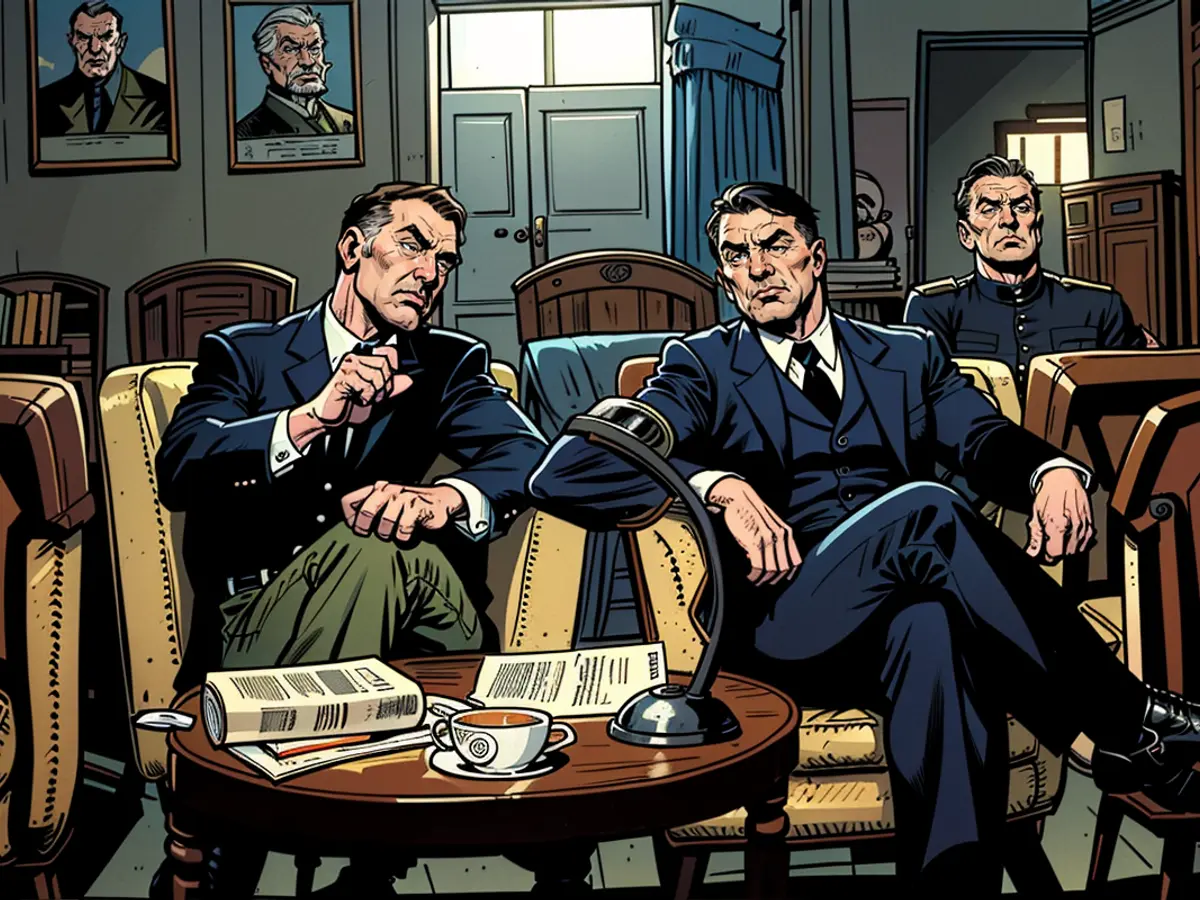
- Robert Stadlober's new project delves into the dark history of National Socialism, a period in which an Austrian played a significant role, although he does not portray Adolf Hitler, but rather his Propaganda Minister Joseph Goebbels.
- In an interview, Robert Stadlober discusses how playing the role of Joseph Goebbels brought up numerous challenges, including maintaining the right distance to avoid becoming another caricature, and the responsibility he felt towards the Holocaust victims and his own family.
- In preparing for his role as Joseph Goebbels, Stadlober found the book "Männerphantasien" by Klaus Theweleit to be a valuable tool, as it exposed the absurdity and toxic masculinity prevalent in militarism and National Socialism.
